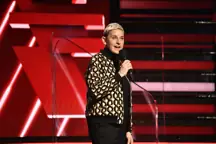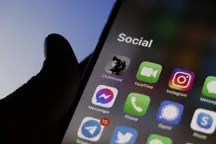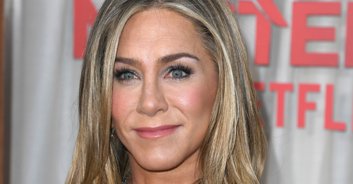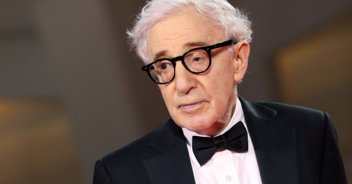What do Justin Timberlake, Eminem, and Ellen DeGeneres have in common? They're celebrities, yes, but they've also faced the threat of being "cancelled" this past year.
In 2021 – 24 years after the first recognisable social media site was created – "cancel culture" is rife, and the pattern all too familiar. When a celebrity or public figure says or does something offensive, a backlash – often driven on social media – follows. Then come the calls to cancel the person. That is, punish them either by terminating their career, or revoking any authority or respect they once commanded.
Of course, there are instances where cancel culture has its place – such as with the likes of Harvey Weinstein and alleged abuser R Kelly. But its ubiquity reveals something more dangerous about our society: our enthusiasm to jump on the bandwagon with little heed to the consequences.

"Cancel culture is a growing trend, and like all trends, it builds momentum and then everyone wants to join in," chartered clinical psychologist, Dr Siobhan McCarthy, tells VT. "It is a group activity, and can be a way for the cancelling community to galvanise support for a cause they feel is valid. People following your lead can feel very rewarding, much like having a 'like' [on social media], it can leave a positive sensation, as it activates the reward centres of the brain."
McCarthy says this can become "addictive", which goes some way to explaining its popularity. Take, for example, the recent case of Eminem.
For two months, the rapper has been on the receiving end of incessant calls to be cancelled after TikTok users unearthed his 2010 collaboration with Rihanna, Love the Way You Lie, which featured blatantly misogynistic lyrics, including, "I’mma tie her to the bed and set this house on fire [sic]."
Eminem should certainly be held to account for writing lyrics that condone domestic violence. But cancelling him entirely – for an 11-year-old lyric – enforces a dangerous narrative; that people are not capable of reform or changing their views. Zoning in on him, moreover, takes accountability away from the hip-hop and rap genres as a whole, which have long been known to speak about women in explicitly derogatory and misogynistic ways.
"Cancel cultures certainly can send a strong message of objection, but it does not allow for debate, challenge, or allow witness to a person altering their views, either publicly or privately", McCarthy corroborates. "Being reminded or held to account for earlier thoughts does not allow for the redemption of a person from old ideas."

It is, of course, more damaging when ordinary people are targeted. Here, the punishment is more severe – sans the protective buffer of wealth and influence that allows cancelled celebrities to carry on living in largely the same manner as before.
In September last year, a professor at the University of Southern California was suspended for using a Chinese word that some of his students thought sounded like the N-word. It was the Chinese word for "that", and the award-winning communications professor was using it to show how different languages use words to fill in spaces in conversation.
The lecture sparked a huge backlash from students and online communities. "Our mental health has been affected," a coalition of students said. "It is an uneasy feeling allowing him to have the power over our grades."
Speaking about the implications of this, McCarthy says: "Anyone who has had the experience of people turning against them or having backs turned on them will experience this is alienating, hurtful or even frightening.
"Given that we are ultimately social animals, having the group turn against us is threatening. If we find ourselves on the outside of the social group, we run the risk of not being protected, or worse attacked and left undefended. For emotionally vulnerable people, such a position could be catastrophic. The difficulty is we do not always know the mental health status, vulnerability, or support networks of another person until it is often too late."

Ultimately, seeing people cancelled regularly – whether they be everyday citizens or celebrities – can be damaging to witness, and McCarthy warns that it may foster a culture of "fear and reluctance to speak out on issues".
"It could result in ideas being driven underground," she continues. "While it cannot be challenged in the public space, it can fester underground, and gather momentum."
This is, of course, the extreme side of the coin – but it's only natural that people are now more aware of what they say, where they say it, and whom they say it too. We have seen how quickly social media can be riled up, and the impact that being publically humiliated can have on lives and livelihoods - whether it's justified or not.
Dr Siobhan McCarthy - DClinPsy, CPsychol, AFBPsS, MSc Family therapy, MSc Health Psychology, BSc (Hons) - is a Chartered Clinical Psychologist and a fellow of the BPS.




